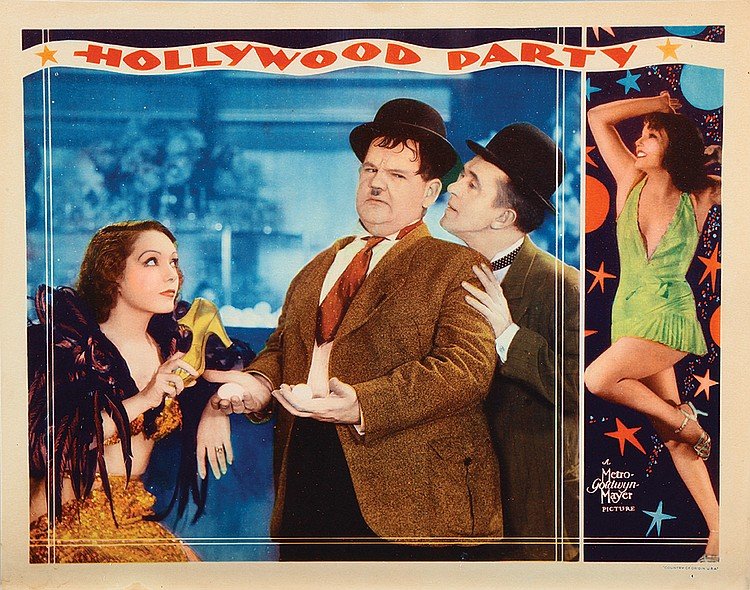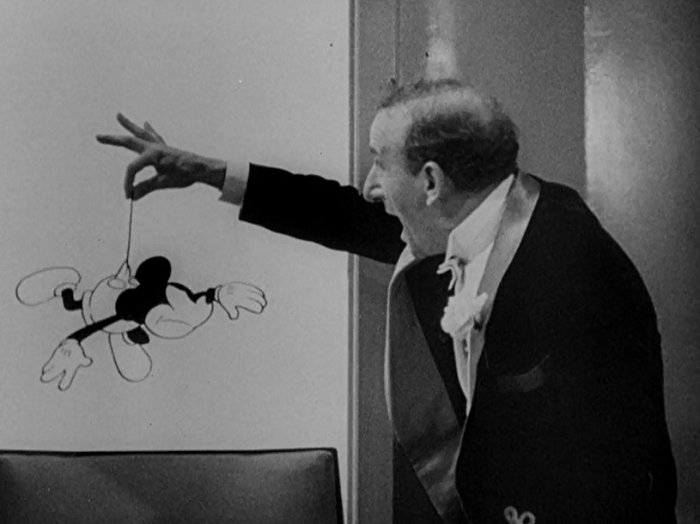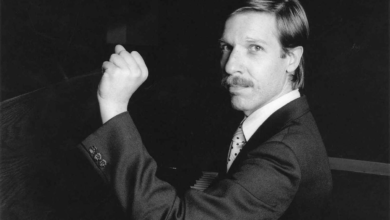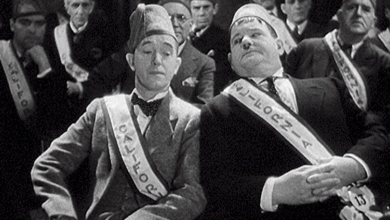The Short, Star-Studded Stinkers of Early Sound Cinema

I am deep into the process of writing my ninth book, The Fractured Mirror, a massive exploration of the history of American movies about the movie business. I plan to write up three hundred movies about movies for the book, which I hope to release in July of next year.
I’m more than halfway finished at this point, having written up one hundred and sixty six films already. I’ve written up timeless masterpieces and unforgivable insults to the art and craft of cinema. I’ve covered Sunset Boulevard, Singing in the Rain and The Bad and the Beautiful but also National Lampoon’s Dirty Movie, National Lampoon’s Another Dirty Movie and Pawparazzi.
It’s been a fascinating and entertaining as well as educational experience. I’m trying to cover over a hundred years in the history of American film so I’m watching more old movies than at any point in my life or career.
I’m learning a lot about the cinema of the 1930s, when sound had conclusively replaced silent film and escapism and tomfoolery were the order of the day as a beaten-down populace tried to forget the horrors of the Great Depression and the first World War as well as the looming specter of a second World War.
There’s something gloriously un-pretentious about this era of American movie comedy. The perversely short, star-studded review-style musicals that I have been watching for The Fractured Mirror didn’t have any illusions about themselves or their role. They understood that they were merely part of a night’s entertainment that could also very well include a Newsreel, a Mickey Mouse cartoon, a Looney Tunes short, live entertainment and a second feature.
In its earliest iteration sound comedy had a very direct connection to vaudeville, which similarly tended towards lowbrow vulgarity and quantity above quality. It’s not at all coincidental that many of the biggest stars in silent and early sound comedy were also big names on the vaudeville circuit.

Many of the old movies that I’ve been writing up for The Fractured Mirror are in the 60 to 70 minute range so that they coul be part of a double feature without taking up too much time or space. There was a pragmatic reason for comedies to be so short but as a critic, cinephile and historian I love that so many early sound comedies never threaten the seventy-five minute mark.
As a stay at home house husband and father for whom time management is of supreme importance, I also love that I can crank out a 200 word blurb on a 63 minute oldie in less time than it takes me to just watch a modern movie.
After the sad demise of double features, newsreels and pre-show cartoons it became conventional wisdom that in order to really qualify as a feature film, a movie had to be, at the very least, eighty minutes long.
That is wrong! There’s no reason at all a god-awful lowbrow comedy has to be 90 minutes. That kind of madness leads to insanely padded comedies that have nothing to say yet take forever to say it. For example I recently watched and wrote about the 2021 anti-divorce comedy-drama Courting Mom and Dad. With outtakes it runs just under 90 minutes but it should be 61 minutes or, better yet, not exist at all.

If W.C. Fields only needed seventy minutes for Never Give a Sucker An Even Break then a labored modern rom-com does not need two hours. The early show-business musicals and comedies that I’ve been covering for my book manage to stuff an impressive amount of star-power into tacky, ramshackle and impossibly short vehicles.
1934’s Hollywood Party, a movie I wrote about for the book, its Backerkit/Kickstarter campaign and this site’s Patreon account but not this website stars Jimmy Durante as well as The Three Stooges, Laurel & Hardy and Mickey Mouse. As if that weren’t auspicious enough, the movie was shot by two-time Academy award-winning legendary cinematographer James Wong Howe, has music by Rodgers and Hart and was ghost-directed by such big names as Allan Dwan, Edmund Goulding, Sam Wood, Roy Rowland, George Stevens and of course Walt Disney.
You might imagine that a movie with that much talent behind the scenes and in front of the camera would be a robust two hours long, excellent and a big success.

Nope. Hollywood Party was seventy-five minutes long in its original form, got dreadful reviews and was quickly forgotten. It’s not an anomaly in that respect. I’ve seen a bunch of movies for this project that are insanely star-studded, feature songs from some of the greatest artists of the day yet are 68 minutes long, forgettable and strangely interchangeable.
Part of that is attributable to the studio system, which dictated that folks employed by studios did whatever the hell the studio wanted, and if that meant singing “My Sweet Little Petunia” while being squirted with water by Billy Barty pretending to be a baby in The Ants in Your Pants Frolics of 1933 then that’s what you did or you didn’t work for months or years as punishment.

If anything, early sound comedy was even more reliant on movie stars than contemporary comedies. It was similarly even less interested in plot or characterization than contemporary comedies. It wasn’t about telling a story or taking audiences on a journey; it was about throwing as many successful funny people as possible onto the screen and hoping the results would be funny enough to excuse a fundamental incoherence.
Then and now, it was a business that occasionally resulted in great art and entertainment but more often produced clattering, celebrity-and-fame-fueled nonsense.
The Joy of Trash, the Happy Place’s first non-“Weird Al” Yankovic-themed book is out! And it’s only 16.50, shipping, handling and taxes included, 30 bucks for two books, domestic only!
Buy The Joy of Trash, The Weird Accordion to Al and the The Weird Accordion to Al in both paperback and hardcover and The Weird A-Coloring to Al and The Weird A-Coloring to Al: Colored-In Special Edition signed from me personally (recommended) over at https://www.nathanrabin.com/shop
Or you can buy The Joy of Trash here and The Weird A-Coloring to Al here and The Weird Accordion to Al here
Help ensure a future for the Happy Place during an uncertain era AND get sweet merch by pledging to the site’s Patreon account at https://www.patreon.com/nathanrabinshappyplace We just added a bunch of new tiers and merchandise AND a second daily blog just for patrons!
Alternately you can buy The Weird Accordion to Al, signed, for just 19.50, tax and shipping included, at the https://www.nathanrabin.com/shop or for more, unsigned, from Amazon here.
I make my living exclusively through book sales and Patreon so please support independent media and one man’s dream and kick in a shekel or two!





